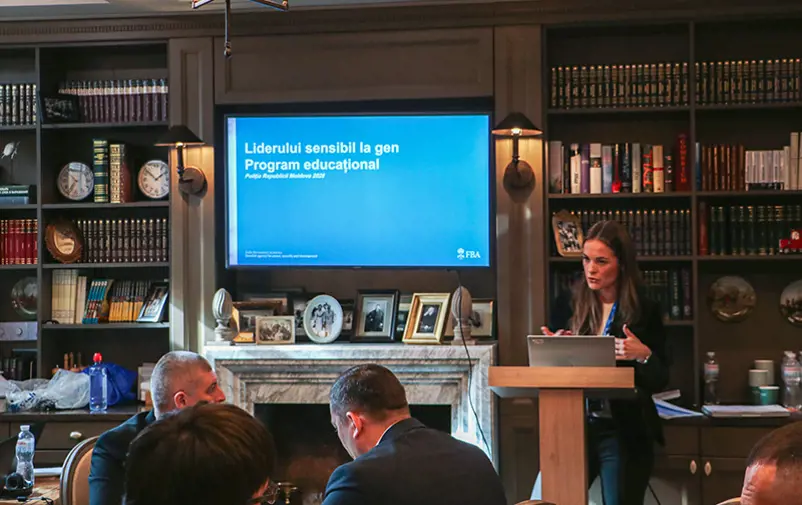
Anna Bäck, kurschef och senior handläggare kvinnor, fred och säkerhet, FBA.
This paper discusses the interlinkages between Security Sector Reform (SSR), elections, and gender equality. It uses FBA’s work in Somalia to show how gender-sensitive election security can serve as an entry point for working with inclusive SSR in an environment characterized by instability, conflict, and political unrest.
It argues that election security in many ways serves as an opportunity to address multiple issues simultaneously, such as coordination and cooperation within the security sector, dialogue with civil society, and the enhancement of gender equality - sometimes in absence of a formalized SSR process.
There is a broad perception that legitimate elections require an
accountable and effective security sector, given that well-conducted
security is vital for the legitimacy and realization of the overall election
process; from voter registration to voter turnout, to securing election
sites, and protecting political candidates. This is especially the case
in post-conflict contexts. Elections are intrinsically conflictual events
that may cause a heightened period of insecurity in any given context,
however, in post-conflict environments the threshold of using violence
tends to be lower, and the capacity of the security sector may be limited.
Gender equality is recognized by numerous international agreements and
treaties as a crucial component of peaceful and democratic societies.1
Integrating a gender perspective in election security is vital to promote
equal participation of men and women, as insecurity impacts women
and men differently. This requires a systematic analysis of the needs
and priorities of diverse groups of women and men, as well as ensuring
that this analysis informs all stages and aspects of security planning.
Failing to integrate a gender perspective, will risk the broad participation
of men and women - as candidates, voters, election management staff,
media workers and civil society representatives, and in turn, the overall
legitimacy of the election.
MER FRÅN FÖRSTASIDAN
Moldavien genomgår just nu en rad olika reformprocesser för att skapa en mer demokratisk statsapparat vilket Sverige ger sitt starka stöd till. FBA:s arbete med att stärka demokratiska principer i länder i vårt närområde skapar ökade möjligheter till bibehållen fred och säkerhet i Sverige.
2025-04-03 15:00FBA har i uppdrag att bidra till Sveriges bistånd i frågor som rör fred och säkerhet
Läs mer om de länder där vi arbetarTill följd av Rysslands invasion har FBA både ökat och anpassat sitt arbete i Ukraina.
Så här bistår FBAKlara Grenhagen är specialist med fokus på dialog, försoning och fredsprocesser.
Läs mer om våra experter